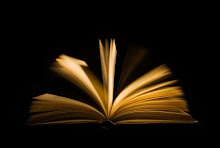 I had the honor of interviewing Ms. Khakpour. She wrote the book Sons and Other Flammable Objects, which will be in paperback this month.
I had the honor of interviewing Ms. Khakpour. She wrote the book Sons and Other Flammable Objects, which will be in paperback this month.YS: What does your writing process consist of?
PK: For books, months and months and maybe years of just thinking, collecting scraps of inspiration, and one day—most likely a rock-bottom day—saying, what the hell, and beginning the first sentence. Then being on eggshells with the manuscript until a third of the way through. Then full speed ahead with maybe one more moment of “what-the-hell-am-I-doing” paralysis in there. All in all, once I have put pen to paper, I tend to race to the finish line—I like to see the whole arc, before I try to polish and perfect. Then I spend years editing and editing until I can’t stand the thing.
YS: How was your transition from writing for publications to writing books?
YS: How was your transition from writing for publications to writing books?
PK: Fiction mode and non-fiction mode have always existed in very separate realms for me. Journalism had the quick fix appeal—projects that neatly wrapped themselves up, got me paid, got my name in print, voila. For much of my twenties, that was enough to keep me entertained and satisfied. But I really had to learn patience with the book—just getting it to the point where you can hand it to a reader takes ages, not to mention the very cumbersome publishing cycle which can force you to live in limbo with your book for another couple years until it comes out. It often even astounds me to remember that I began writing my debut novel when I was 25 and it came out when I was 29—and actually that’s pretty fast. And yet I have some serious disconnect from myself at 25, so it feels a bit strange.
YS: When did you start writing books and what influenced you to start?
YS: When did you start writing books and what influenced you to start?
PK: I began writing before I could write—or storytelling at least. My family fled Iran, where I was born, during the Islamic Revolution and so in our journey through the Middle East and Europe all I really had handy for a “toy” was paper and pen. So I drew a lot and eventually bored with that, made my father write down my accompanying stories. I began orating very long tales! By the time we got properly settled in the States, I was able to write and then couldn’t stop creating my own little books. I wrote a couple novels before I was 12. I never really knew any other life than a literary one, as it was my only preoccupation from such a young age.
YS: What motivates you as a writer?
YS: What motivates you as a writer?
PK: Writing the books I want to read.
YS: What is your advice to individuals who want to write?
YS: What is your advice to individuals who want to write?
PK: I would say in general, they should follow their own path and not seek the advice of other writers, living or dead, so much! I say this from experience. All I ever did as a young writer was read about how other writers did it and I can say in the end, that while it made me feel less alone, none it actually “helped.” Even the rules of someone a half generation before me don’t apply anymore—even last year’s rules don’t apply this year. The world is changing so fast, faster than ever it seems. The only way to navigate the rapids, is to follow your own path, to listen to your own heart, and use the old common sense. To my own shock, I have found almost everyone wrong at some point; to my own greater shock, I have found my own self right more often than not.
YS: What do you feel is you biggest accomplishment as a writer?
PK:I think I wrote something that I can truly say, whether you loved it or hated it, was me. It represented my heart, mind, sensibility, worldview, and even rhythm. It was done completely genuinely without thinking about what would sell, how it could sell, etc. I never thought it would sell! The purity in its composition will always impress me. I also think it has value as one of the very first Iranian-American novels—by that I mean, written about the diaspora community exclusively—and again, I think that came out of a desire to be authentic, rather than glorious somehow. I only knew about Iran as experienced from the U.S.
YS: How do you stay consistent as a writer so you can see growth professionally?
PK: I don’t know if you have to stay consistent. You have to stay good. The only rule I’ve ever seen withstand tests is quality. And also you just have to just stay, period. This is a tough game to play. At many points in the journey, I wanted to jump ship. I think you just have to hang in there—that seems more than half the battle. This industry will really test how much you believe in yourself, and in many ways having another project relies on winning a confidence game, sometimes just with yourself.
YS: What do you feel is you biggest accomplishment as a writer?
PK:I think I wrote something that I can truly say, whether you loved it or hated it, was me. It represented my heart, mind, sensibility, worldview, and even rhythm. It was done completely genuinely without thinking about what would sell, how it could sell, etc. I never thought it would sell! The purity in its composition will always impress me. I also think it has value as one of the very first Iranian-American novels—by that I mean, written about the diaspora community exclusively—and again, I think that came out of a desire to be authentic, rather than glorious somehow. I only knew about Iran as experienced from the U.S.
YS: How do you stay consistent as a writer so you can see growth professionally?
PK: I don’t know if you have to stay consistent. You have to stay good. The only rule I’ve ever seen withstand tests is quality. And also you just have to just stay, period. This is a tough game to play. At many points in the journey, I wanted to jump ship. I think you just have to hang in there—that seems more than half the battle. This industry will really test how much you believe in yourself, and in many ways having another project relies on winning a confidence game, sometimes just with yourself.



















1 comment:
Thanks so much for the interview, I'm really gonna check out this book.
Post a Comment